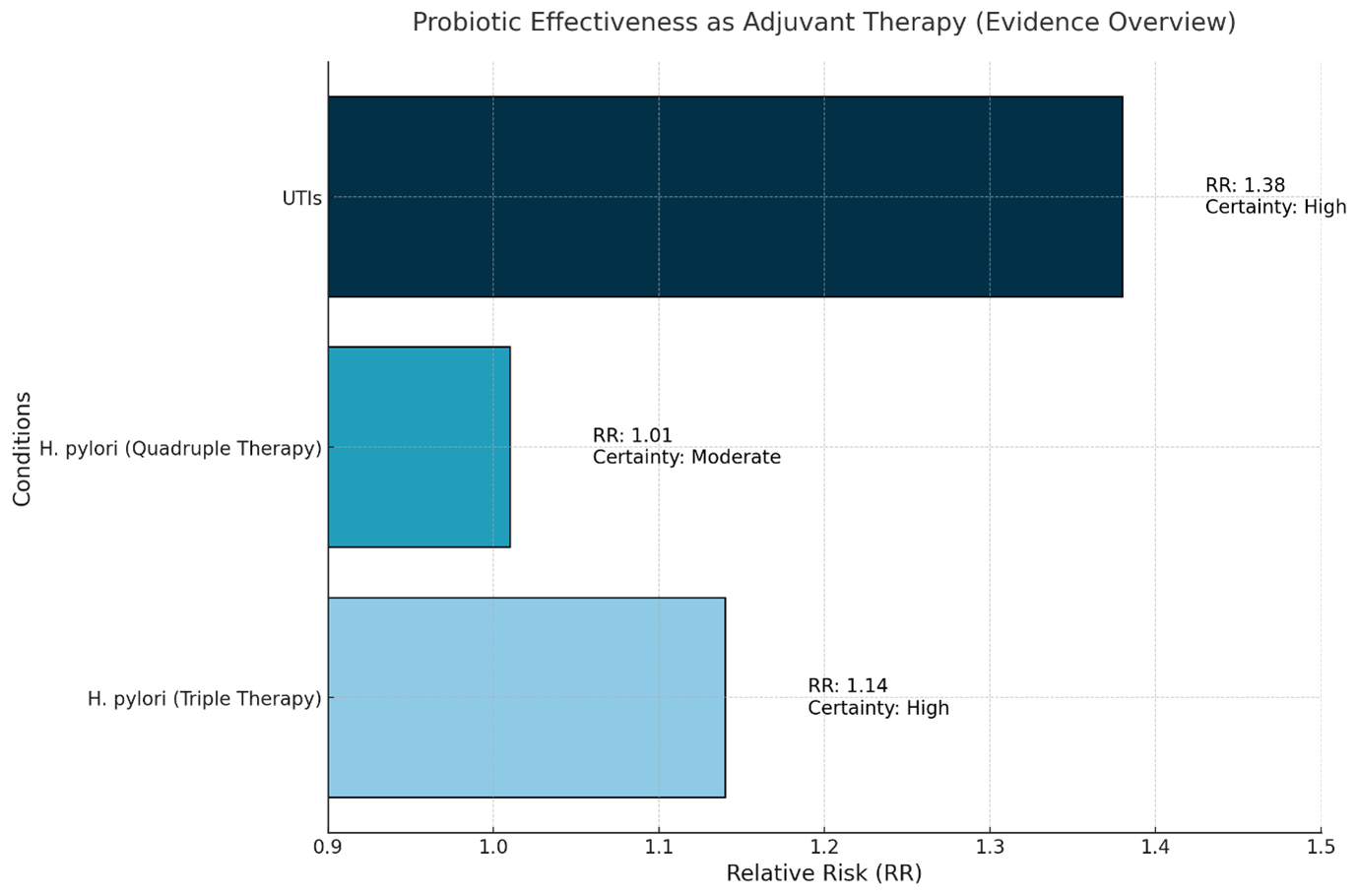Key Findings
1. Probiotics in H. pylori Eradication
- Probiotics used as an adjuvant significantly improved H. pylori eradication rates compared to control groups (RR: 1.09; CI: 1.04–1.13; p = 0.001).
- Subgroup analysis revealed that standard triple therapy outperformed quadruple therapy (RR: 1.14 vs. 1.01, respectively).
- Single-strain and multi-strain probiotics showed comparable efficacy (RR: 1.09 for both).






